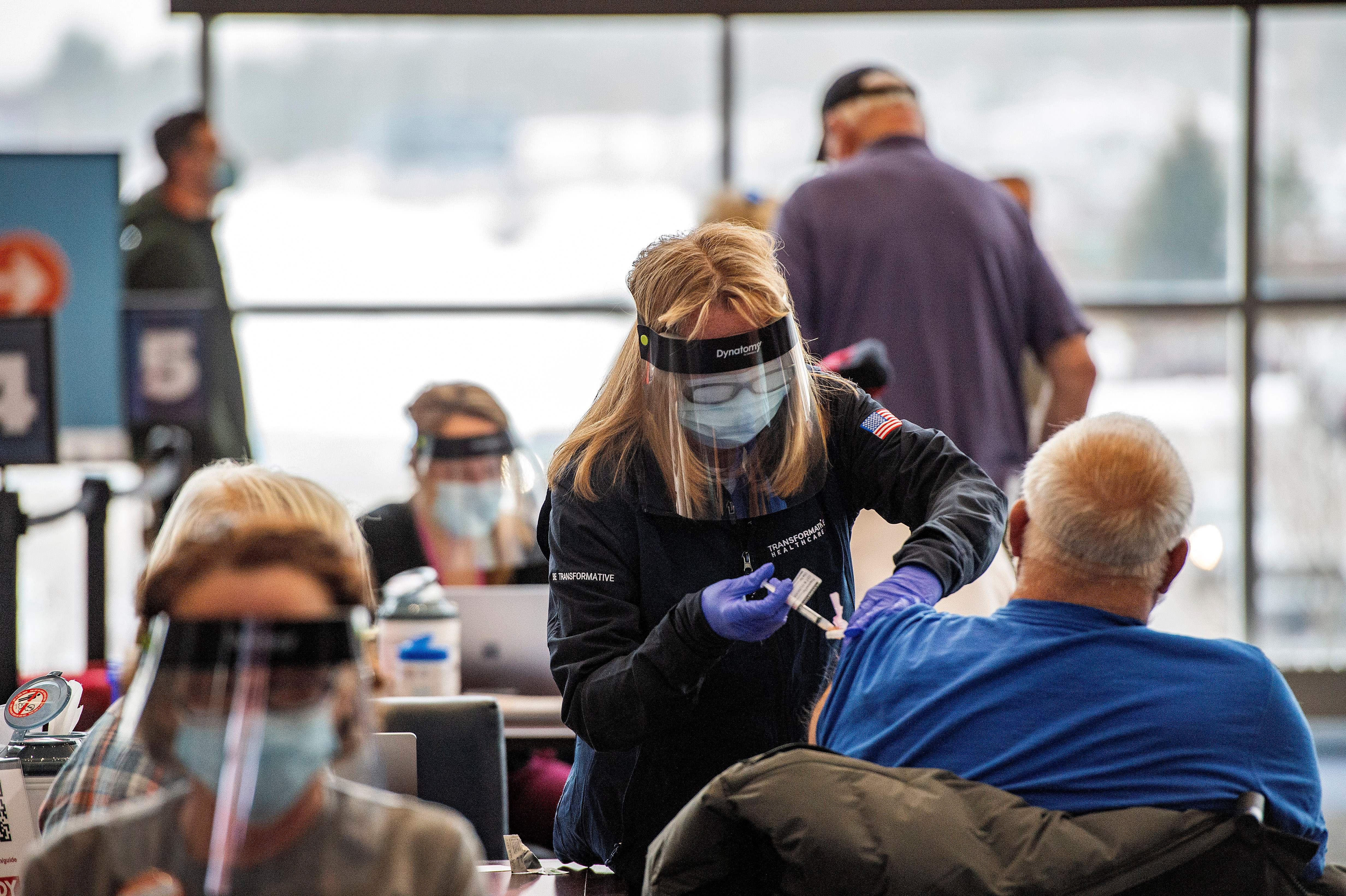Covid cases are falling, but unequal vaccine access threatens global recovery, WHO says
Global Covid-19 cases are on the decline, but the uneven distribution of life-saving vaccines may extend the global financial restoration and go away growing nations even additional behind, the World Health Organization stated Wednesday.
There had been 3.7 million new global coronavirus cases reported in the course of the week ending Jan. 31, a 13% lower in contrast with the prior week, based on the WHO’s latest situation report. Covid-19 deaths, which lag new cases by a couple of weeks, posted a modest 1% decline over the week.
That’s welcome information contemplating global cases had been anticipated to breach 5.5 million cases every week, but greater than 3 million new infections is “still an awful lot of people,” stated Dr. Mike Ryan, govt director of the WHO’s well being emergencies program.
“The rain has eased but the sun’s not out yet,” Ryan stated throughout a dwell Q&A session on the company’s Geneva headquarters.
Health specialists have warned that new, extremely infectious variants of the virus first recognized within the United Kingdom, South Africa and Brazil may add gas to already raging outbreaks in nations all over the world.
A sooner transmitting virus may result in extra infections, would would finally trigger extra hospitalizations and deaths if it spreads unchecked. But even in areas the place the variants have emerged, cases are on the decline, stated Maria Van Kerkhove, head of the WHO’s rising ailments and zoonosis unit.
In the U.Okay., which recognized the B.1.1.7 variant in December, cases have declined 31% in contrast with the prior week, based on the WHO report. Likewise, in South Africa, which additionally found the same variant known as B.1.351 late final yr, cases declined by 44%, the report stated.
“This is important because people are scared when they hear mutations and mutants and variants,” Kerkhove stated. “We cannot let our guard down. We cannot let up.”
The emergence of recent coronavirus variants have not come as a shock to scientists because it’s regular for viruses to mutate as they unfold. Experts are worried that some of the strains, particularly the B.1.351 variant present in South Africa, may pose a threat to the effectiveness of at the moment obtainable vaccines and therapeutics.
Drugmakers have maintained that their photographs ought to nonetheless work in opposition to the brand new variants, but well being specialists have confused that it is vital to tamp down the unfold of the virus to stop extra mutations whereas nations deploy the preliminary provides of Covid-19 vaccines.
However, not all nations have been given equal access to the life-saving medicine.
Of the nations which have began rolling out doses to their residents, most of them have been in higher-income nations that claimed the early provide of vials by means of their very own provide agreements, WHO Director-General Tedros Adhanom Ghebreyesus has warned.
That’s an issue as a result of the vaccines will finally enable nations to reopen their economies with out risking a rise in hospitalizations and deaths from the virus, Ryan stated on Wednesday. The WHO has advocated for nations to join COVAX, a global alliance it co-heads that goals to ship coronavirus vaccines to the world’s poorest nations.
The program hopes to ship 2.3 billion doses by the top of this yr. Earlier on Wednesday, officers from COVAX introduced that it has allotted at the least 330 million doses to this point for poorer nations, which it hopes to start delivering by late February or early March. Those early doses would go towards vaccinating individuals most in danger, like health-care staff.
Ryan stated this may enable nations to reopen their economies with out having to fret about including extra pressure to their hospital techniques, but that will not be potential till “we can deliver the minimum number of doses of vaccine to all countries.”
“If we want our societies open, if we want to be on the journey to normalization and normalizing the way we live, then we’ve got to be fair about the way we distribute the means to live normally,” Ryan stated. “Right now, the unequal distribution of vaccines means that not all societies are going to get an equal chance to come back online and that’s simply not fair.”
— CNBC’s Holly Ellyatt and Reuters contributed to this report.




